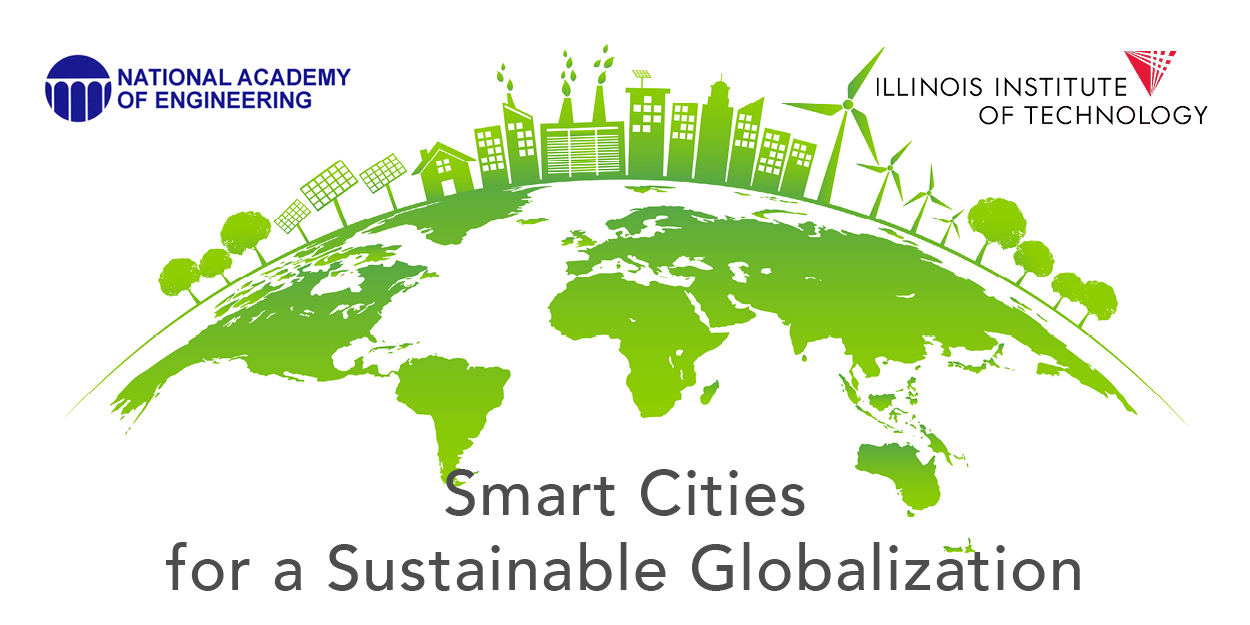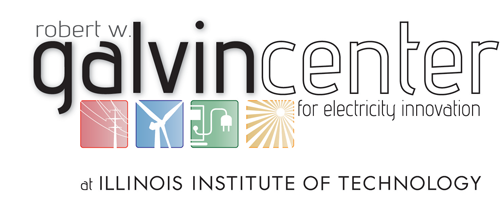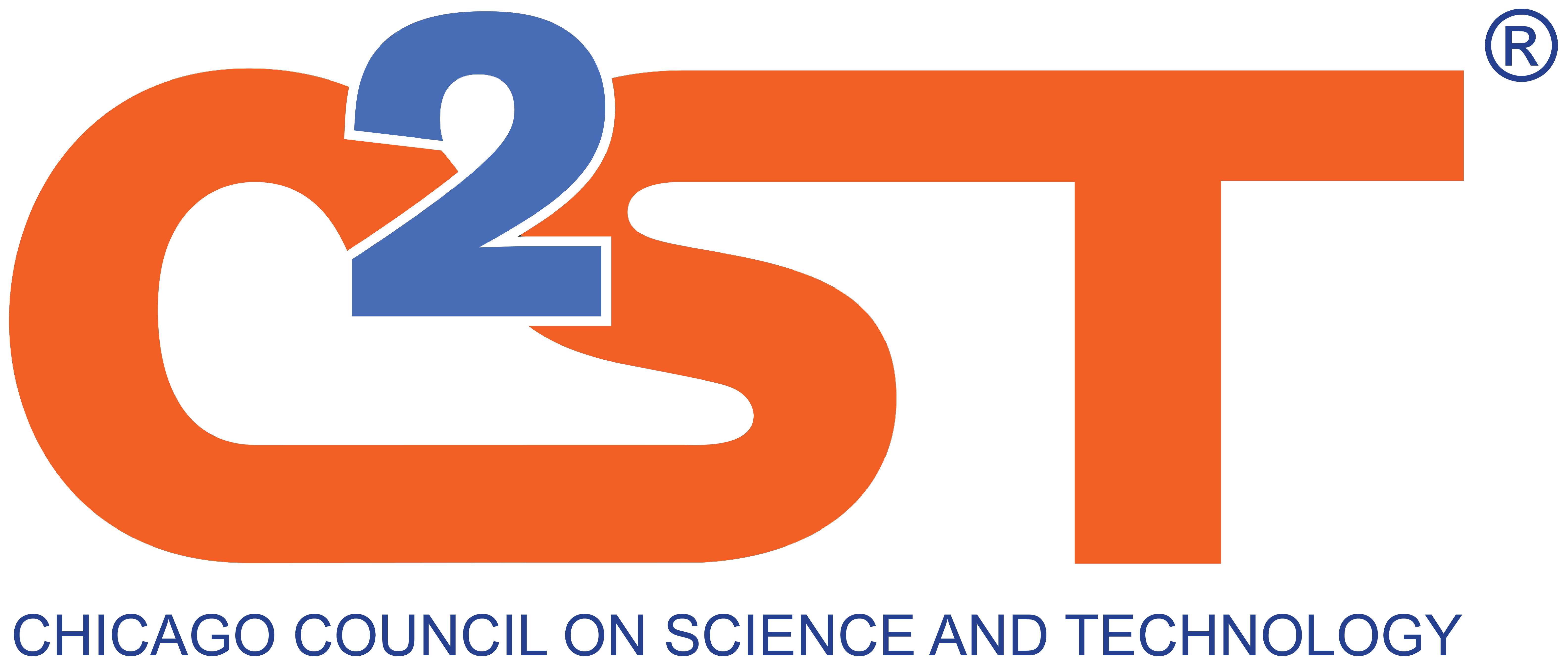National Academy of Engineering Symposium at Illinois Tech:
Smart Cities for a Sustainable Globalization
The goal of establishing a smart city is to improve the quality of life and promote global sustainability by using urban and distributed technologies that can improve the efficiency of services and meet individual resident’s critical needs. A smart city will be more prepared to respond to everyday challenges than a traditional monitoring system with a simple transactional relationship with local citizens. A smart city is, in essence, an urban development for integrating multiple information and communication technology (ICT) and Internet of things (IoT) solutions in a secure fashion. The integrated smart city solution will manage a region’s large and interdependent infrastructures including transportation system, hospitals, electric power system, urban traffic system, natural gas system, water supply network, waste management, law enforcement and security buildings, schools and community centers, and other local services. Also, the integrated smart city solution will enhance the performance and the interactivity of urban services, reduce costs, manage resource consumptions, and improve security, reliability, resilience, and sustainability in large metropolitan regions. Furthermore, the integrated solution will allow smart city officials to interact directly with community members, and those in charge of critical infrastructures, in order to oversee what is happening in the city, how the city functions are evolving, and how to enable a better quality of life in normal and stressed conditions. The information and knowledge gathered through the use of smart sensors integrated with real‐time monitoring systems are keys to tackling inefficiencies in smart cities. The pertinent data are collected, processed and then analyzed with the goal of improving the management of urban flows and allowing for real‐time responses to unforeseen challenges. This presentation will introduce the components and the structure embedded in smart cities and discuss the benefits and the predicaments of implementing smart cities for promoting global sustainability.
Event Details
Symposium Speaker Timeline:
2:00 – 2:10 Introduction: Dr. C.D. Mote, Jr. (President, NAE)
2:10 – 2:30 Lead off speaker: Dr. Jose Moura (IEEE President, Professor at Carnegie Mellon University) “The IEEE Initiative on Smart Cities”
2:30 – 2:50 Dr. Shay Bahramirad (Vice President- Engineering and Smart Grid at ComEd) “Electric Utility: A Key Driver of Global Sustainability”
2:50 – 3:10 Dr. Pramod Khargonekar (Vice Chancellor for Research, University of California-Irvine) “Socially Responsible Automation: A Framework for Shaping Smart Cities”
3:10 – 3:30 Brenna Berman (Executive Director of the City Tech Collaborative; former Chief Information Officer, City of Chicago) “Data-Driven Residents in Smart Cities”
3:30 – 3:50 General Alicia Tate-Nadeau (Director of Illinois Emergency Management Agency and Homeland Security) “Emergency Services Management in Smart Cities”
3:50 – 4:20 Panel Discussion
4:20 – 4:30 Closing remarks: Dr. Peter Kilpatrick (Provost, Illinois Tech)
4:30 Reception
Parking and Transportation:
Visitor parking is available on a first-come, first served basis in self-service pay lots campus-wide. Visitor lots are enforced Monday-Friday, 7:00 am – 7:00 pm unless otherwise posted. For locations and rates please visit https://web.iit.edu/acaps/parking/visitor-and-event-parking.
The IIT campus is accessible via the Red and Green lines, as well as several buses. For directions using public transportation visit www.transitchicago.com.





